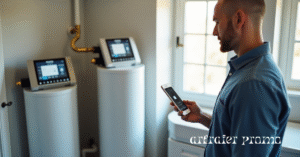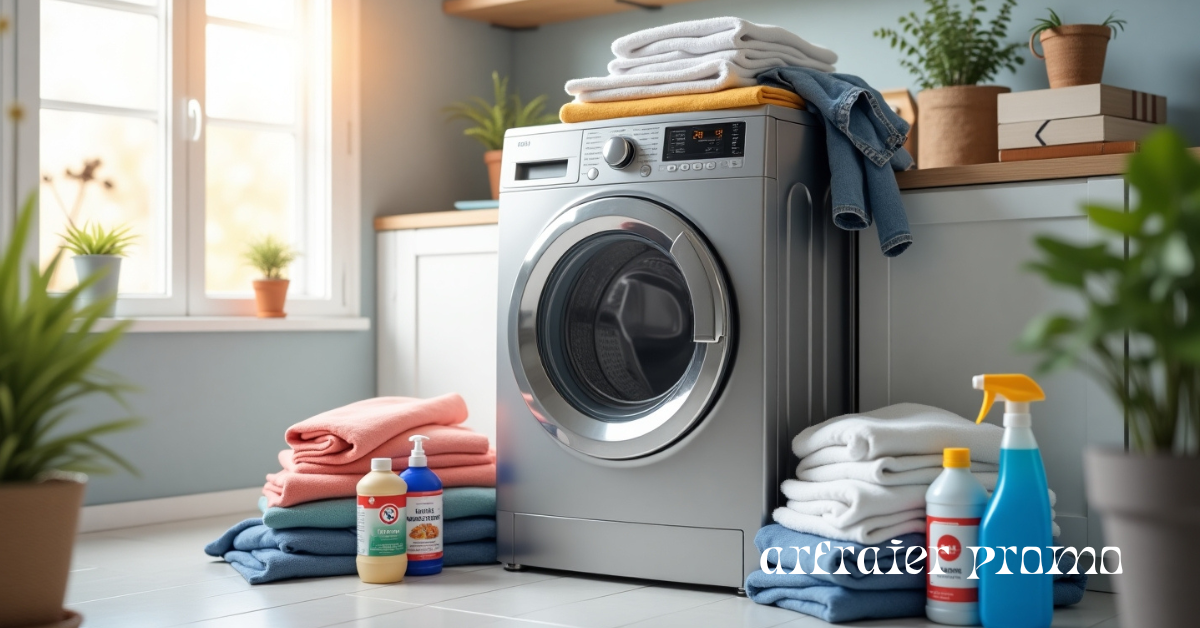If you’re dealing with hard water stains, clogged pipes, or dry skin, a water softener system might be the solution. But before buying, it’s essential to understand how they work and what they cost. In this guide, we’ll cover everything — from how water softeners function to types, sizing, top brands, installation options, and a detailed cost breakdown.
What Is a Water Softener System?
A water softener system is designed to remove excess minerals — mainly calcium and magnesium — from hard water. These minerals cause scaling, soap inefficiency, and appliance damage. By softening the water, you protect your plumbing system, extend appliance life, and improve water quality for cleaning and bathing.
How Do Water Softeners Work?
Most systems use an ion exchange process, where hard minerals are swapped with sodium or potassium ions using a resin tank. Other systems, like salt-free conditioners, neutralize minerals to prevent scaling rather than removing them.
Do You Need a Water Softener?
You likely need one if:
-
You see white mineral deposits on faucets or dishes
-
Your water feels “slippery” or leaves residue
-
Soap and shampoo don’t lather well
-
Appliances like water heaters or washing machines wear out quickly
-
You live in a hard water region (10+ grains per gallon)
A water test can confirm your water hardness level.
Types of Water Softeners
| Type | How It Works | Best For | Pros | Cons |
|---|---|---|---|---|
| Salt-Based (Ion Exchange) | Replaces calcium/magnesium with sodium | Most homes | Effective, long-lasting | Needs salt refills |
| Salt-Free (Conditioners) | Crystallizes minerals to prevent scaling | Mild-hard water | No salt, low maintenance | Doesn’t remove hardness |
| Dual Tank Systems | Two resin tanks for continuous softening | Large families | No downtime | Expensive |
| Magnetic/Electronic | Alters mineral structure with magnetic fields | Light scaling | Inexpensive, DIY | Mixed effectiveness |
| Reverse Osmosis (RO) | Removes impurities + softens | Drinking water, whole-house | Purifies water | Higher cost, slow flow |
Sizing Your Water Softener System
Choose based on grain capacity (how much hardness the unit can remove before regeneration):
| Household Size | Grain Capacity Needed |
|---|---|
| 1–2 people | 24,000–32,000 grains |
| 3–4 people | 32,000–48,000 grains |
| 5+ people | 48,000–64,000+ grains |
Water Softener System Cost Breakdown
By Type
| Type | Unit Cost | Installation | Total |
|---|---|---|---|
| Salt-Based | $500–$2,500 | $200–$500 | $700–$3,000 |
| Salt-Free | $700–$2,500 | $150–$400 | $850–$2,900 |
| Dual Tank | $1,500–$3,500 | $300–$700 | $1,800–$4,200 |
| Magnetic | $100–$300 | DIY | $100–$300 |
| RO System | $1,000–$4,000 | $300–$600 | $1,300–$4,600 |
By Brand
| Brand | Typical Price Range | Known For |
|---|---|---|
| Culligan | $1,500–$4,000 (incl. install) | Professional setup |
| Fleck | $600–$2,000 | Long-lasting, trusted tech |
| GE | $500–$1,200 | Easy to use, retail availability |
| Whirlpool | $400–$1,500 | Budget-friendly DIY units |
| Pelican | $800–$2,500 | Eco-friendly salt-free systems |
Installation Costs
-
Labor only: $150–$500 depending on plumbing complexity
-
Additional plumbing work: $200–$600
-
Permits or code upgrades: Check with your municipality
DIY installations can save money but may not be suitable for complex systems.
Maintenance Costs
-
Salt (for salt-based systems): ~$5–$10/month
-
Filter replacement: $50–$150/year
-
Cleaning/resin change (every 5–10 years): ~$200–$400
-
Annual servicing (optional): $100–$300
Benefits of Installing a Water Softener
-
Prevents scale buildup in pipes and appliances
-
Saves energy by improving appliance efficiency
-
Improves skin and hair condition
-
Extends the life of plumbing and water heaters
-
Reduces soap and detergent usage

Conclusion
Water softeners are a smart investment for any home suffering from hard water issues. Whether you go for a budget-friendly magnetic unit or a high-end dual-tank system, understanding the types, costs, and sizing ensures you get the best value. Always consider water hardness, household size, and maintenance requirements before making a purchase.
Frequently Asked Questions (FAQs)
Q1. Can I install a water softener myself?
Yes, especially magnetic or smaller systems. However, salt-based systems may require plumbing expertise.
Q2. How long does a water softener system last?
Most last 10–15 years with proper maintenance.
Q3. Will a water softener increase my water bill?
Only slightly, due to regeneration cycles. The savings on energy and repairs usually outweigh it.
Q4. What size water softener do I need?
It depends on your household size and daily water usage. Most homes require a 32,000–48,000 grain unit.
Q5. Is softened water safe to drink?
Yes, but people on low-sodium diets may prefer RO systems or potassium-based softeners.






